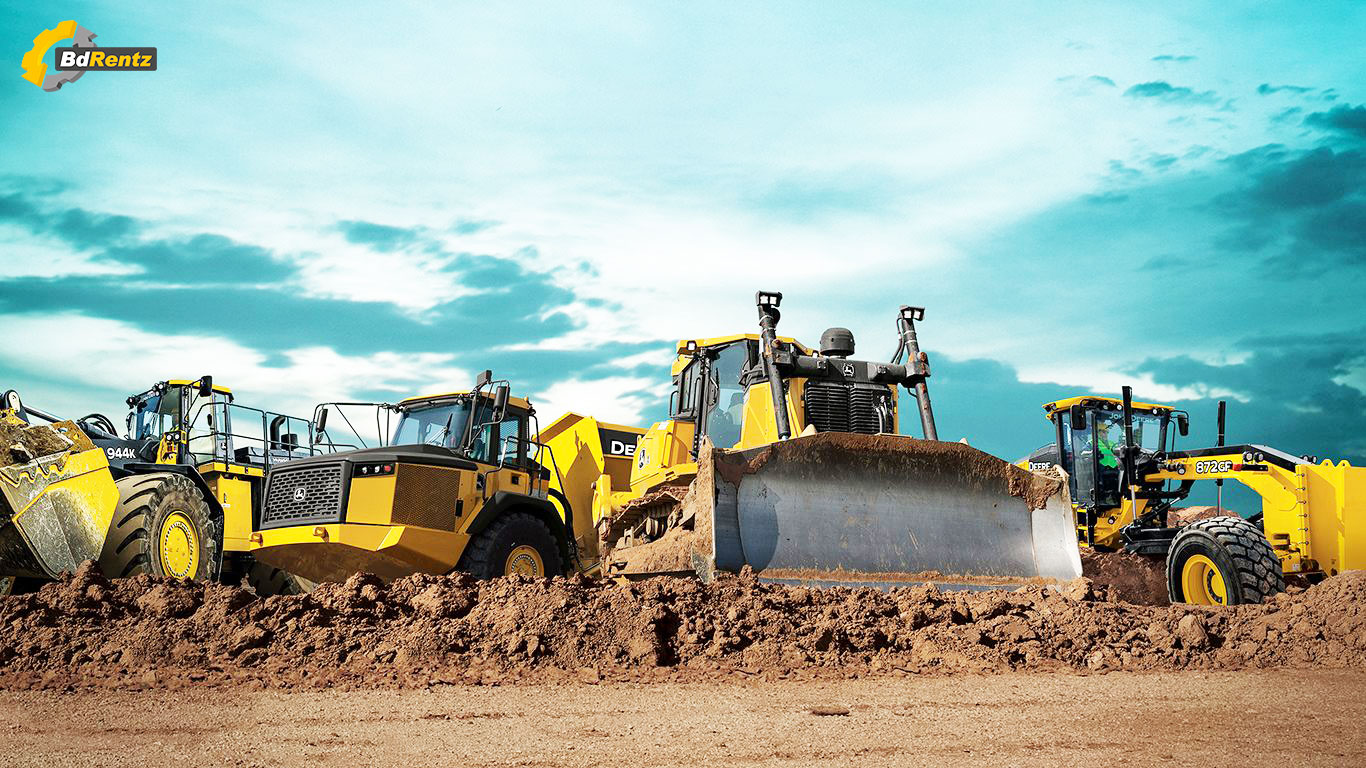Heavy Equipment Rental: Huge Equipment for Any Type Of Construction Job
Maximize Your Spending Plan by Comprehending the Costs Associated With Building And Construction Devices Rentals
Understanding the full range of costs associated with building tools rentals is vital for optimizing your budget. What techniques can be utilized to properly take care of these costs and ensure a more effective rental experience?
Review of Rental Expenses
When considering building and construction equipment services, understanding the connected prices is vital for effective budgeting and project planning. Rental expenses can differ substantially based on a number of variables, including tools type, duration of service, and location. The preliminary rental cost frequently mirrors the equipment's market demand and its linked operational abilities, affecting the overall expenditure.
In addition to the base rental price, ancillary expenses might develop, such as transportation fees, fuel additional charges, and upkeep charges. It is vital to make up these additional costs to accurately assess the complete cost of leasing devices. In addition, the rental period can impact pricing; longer leasings might get approved for affordable prices, while temporary rentals might incur higher everyday fees.

Breakdown of Rental Prices
A thorough understanding of rental prices is important for service providers and task supervisors aiming to optimize their budgets. Rental prices for building devices generally contain numerous elements, including base prices, time-based costs, and usage fees.
Base prices are the core fees connected with the service of the devices, typically determined by the kind and size of the equipment. These rates can differ substantially, influenced by elements such as equipment demand, schedule, and local market patterns. Time-based charges, which might be daily, weekly, or monthly, serve to suit different project timelines and rental periods.
Additionally, rental prices may consist of usage costs, which apply when devices is utilized beyond a defined threshold, ensuring that the rental firm can account for deterioration. Seasonal demand variations can also impact rental prices, with peak building periods usually regulating higher rates.
Moreover, comprehending the rental company's policies pertaining to upkeep and insurance can give additional insight right into the general price framework. By examining these components, service providers can make informed decisions, making sure the option of rental devices straightens with both project requirements and budget plan restraints.
Additional Fees to Consider
Comprehending the ins and outs of extra charges is vital for contractors to manage their overall rental expenses effectively. Past the standard rental rates, different supplemental fees can substantially affect the overall expense of equipment service. These costs usually consist of shipment and pickup charges, which can vary based upon range and logistics associated with transporting the devices to and from the task site.
Moreover, some rental firms might impose fuel additional charges if the tools is returned with much less fuel than when rented. It is additionally crucial to recognize prospective cleaning costs, specifically for specific equipment that calls for detailed maintenance after use.

Extensively examining the rental agreement and making clear these extra costs in advance can help service providers make sure and avoid unforeseen prices that budget plans continue to be intact throughout the project lifecycle.
Upkeep and Repair Work Expenditures
Regular upkeep and fixing expenses are often ignored this hyperlink factors that can considerably affect the overall expense of construction devices leasings. When renting out equipment, it is vital to consider not just the rental fees however additionally the potential prices related to keeping the machinery in ideal operating problem.
Many rental firms include fundamental upkeep as component of the rental arrangement; nonetheless, a lot more considerable fixings or unexpected break downs can lead to additional costs. It's important to assess the rental contract very carefully to recognize what upkeep solutions are covered and what duties drop on the occupant.
In addition, tools that is not well-kept can result in ineffectiveness on duty website, possibly triggering delays and enhancing project prices. To alleviate these risks, it is recommended to conduct regular assessments and keep open interaction with the rental provider regarding any type of concerns that arise during use.
Insurance Coverage and Responsibility Expenses
Insurance and obligation expenses are crucial components that can significantly influence the general expense of building and construction devices rentals (forklift rental). These expenses ensure that both the rental firm and the client are secured from potential economic losses developing from accidents, damage, or burglary during the rental duration

Furthermore, customers should be conscious of any deductibles or exclusions in the insurance coverage policy, as these can influence prospective out-of-pocket expenditures. Understanding the terms and problems of any type of insurance coverage is essential to avoid unforeseen prices. Inevitably, budgeting for insurance and obligation expenditures can help guarantee a smoother rental experience and secure versus economic risks connected with building and construction tasks.
Conclusion
In verdict, an extensive understanding of the expenses connected with construction tools leasings is vital for effective budget administration. Eventually, informed decision-making pertaining to devices services contributes to the total success of building undertakings.
Rental prices can differ significantly based on numerous aspects, including tools type, period of rental, and area (mini excavator rental). The rental period can influence prices; longer services might certify for discounted prices, while short-term services might sustain higher everyday charges
By carrying out extensive study and engaging with respectable rental companies, specialists can efficiently browse the intricacies of rental prices, inevitably maximizing their monetary sources.
Beyond the common rental prices, various auxiliary charges can substantially affect the total expense of tools service. Rental companies often give obligation insurance policy that covers injuries to 3rd celebrations or damages to home, while devices damage insurance coverage can cover the expense of repairs or substitute if the rented devices is damaged.